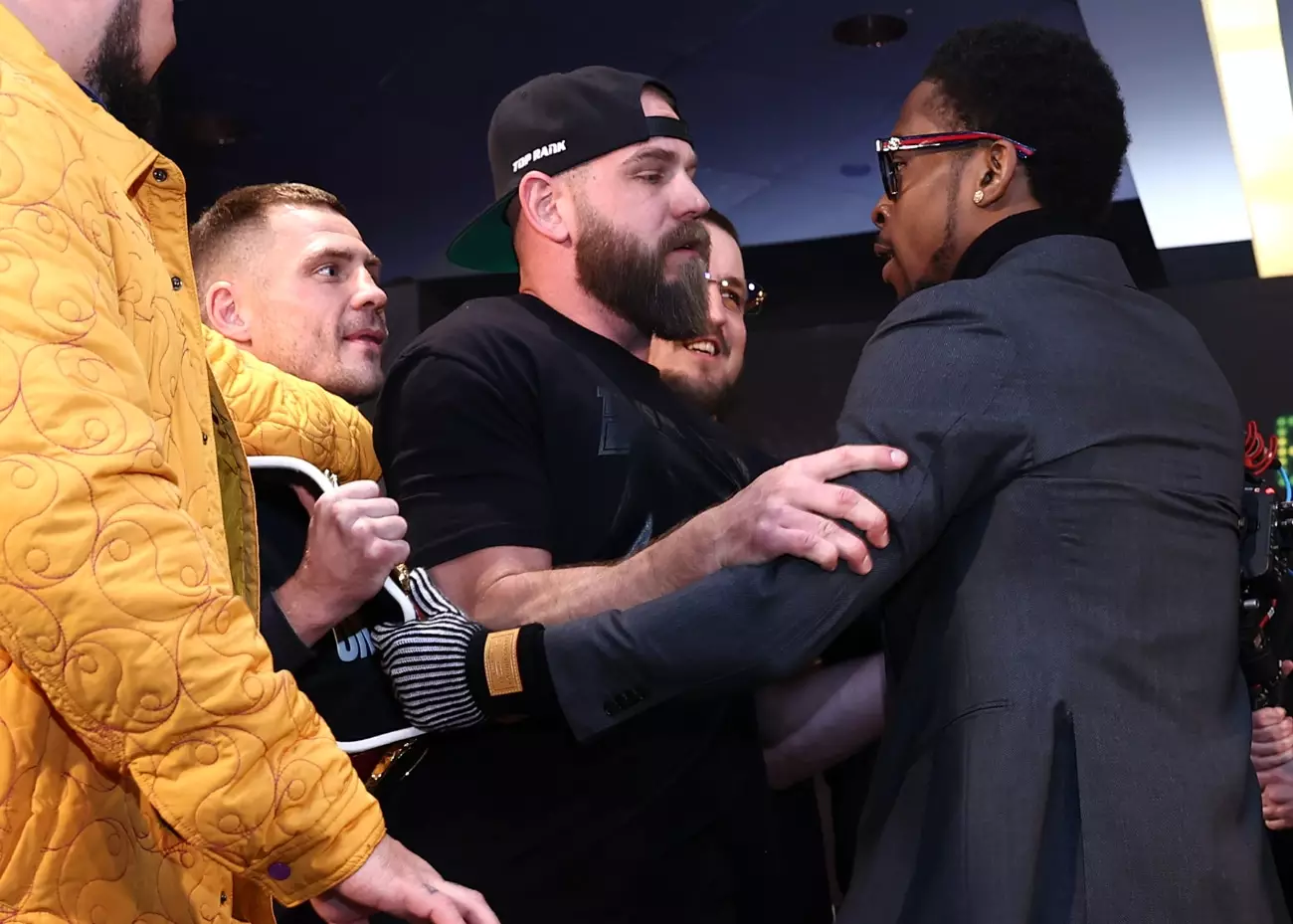When it comes to the world of boxing, rivalries and controversies are part and parcel of the sport’s rich tapestry. Recently, this narrative played out in an intense episode involving rising lightweight star Keyshawn Davis, WBO champion Denys Berinchyk, and former champion Teofimo Lopez. The incident escalated following a peculiar prank that entailed a box of bananas and watermelons sent to Davis’s hotel room, giving rise to accusations of racism against Berinchyk. In this evaluation, we delve deeper into the implications of these allegations and examine the underlying motivations behind each fighter’s actions.
The uproar began when Keyshawn Davis found himself on the receiving end of a prank that many viewed as tasteless and racially insensitive. The anonymous delivery of a box containing culturally loaded items proved to be more than just a lighthearted joke; it opened a chasm of accusations, particularly by Davis, who labeled Berinchyk a “racist” without concrete evidence. This situation raises questions about the seriousness of labeling someone as a racist without solid proof. In today’s social climate, such an accusation is immensely damaging and could tarnish reputations irreparably. Davis’s insistence on Berinchyk’s guilt reflects a move that many would consider morally dubious, prioritizing personal outrage over facts.
Adding to the equation is Teofimo Lopez, who seemingly found amusement in the chaos that ensued. His social media posts led many to speculate whether he orchestrated the prank aimed at Davis, possibly to provoke him further. The ambiguity surrounding the prankster’s identity amplifies the tension. If Lopez indeed had a hand in this, it illuminates his personal grievances with Davis, showcasing a narrative of animosity that transcends mere sports rivalry. However, if he was not involved, it emphasizes the dangers of jumping to conclusions about others’ character based simply on conjecture.
Amidst the allegations and personal turmoil, it is crucial to revisit Keyshawn Davis’s intentions and aspirations. He confidently stated to the media that capturing a world title would elevate him among the best in the sport, irrespective of who is in the ring with him. This statement provides a glimpse into Davis’s mindset: his ambition appears unwavering as he seeks to establish himself through the WBO lightweight title. However, the questioning arises when one examines his choice of opponents. Davis has claimed a preference for fighting “beatable” opponents, steering clear from confrontations with formidable fighters like Andy Cruz. Such tactics may reveal a strategic blueprint to secure titles, albeit at the expense of proving himself against more arduous challenges.
As we examine this unfolding drama, a troubling pattern emerges regarding the character assassination that often occurs in the high-stakes world of boxing. Keyshawn Davis’s characterization of Berinchyk as a racist, despite a lack of evidence, typifies a broader issue within the sport. Accusations can have far-reaching consequences, leading to public condemnation and a loss of opportunities for those involved. The moral dilemmas found within this tale underscore the necessity for accountability and the adherence to ethical standards, particularly when making assertions that could devastate an individual’s career and life.
The incident involving Keyshawn Davis, Denys Berinchyk, and Teofimo Lopez is a microcosm of the complexities surrounding modern boxing. It encapsulates the intertwining of personal vendettas and career ambitions, highlighting how quickly a harmless prank can spiral into a crisis. As fans and observers of this sport, the onus lies on us to navigate these controversies with caution and discernment. With stakes as high as world titles and reputation, the boxing community must foster an environment where athletes are both ambitious and ethically sound, ensuring that sporting rivalries enhance the narrative rather than diminish the integrity of the sport.

